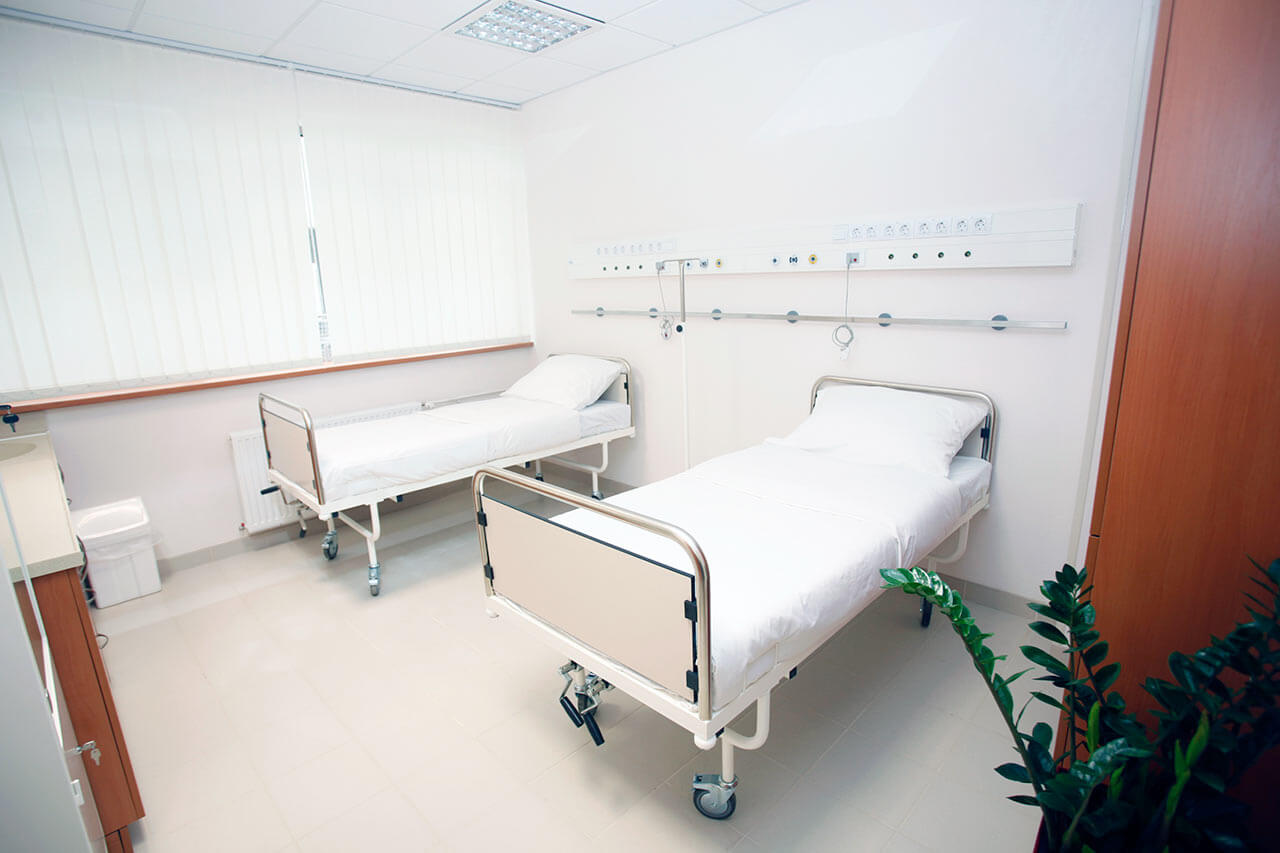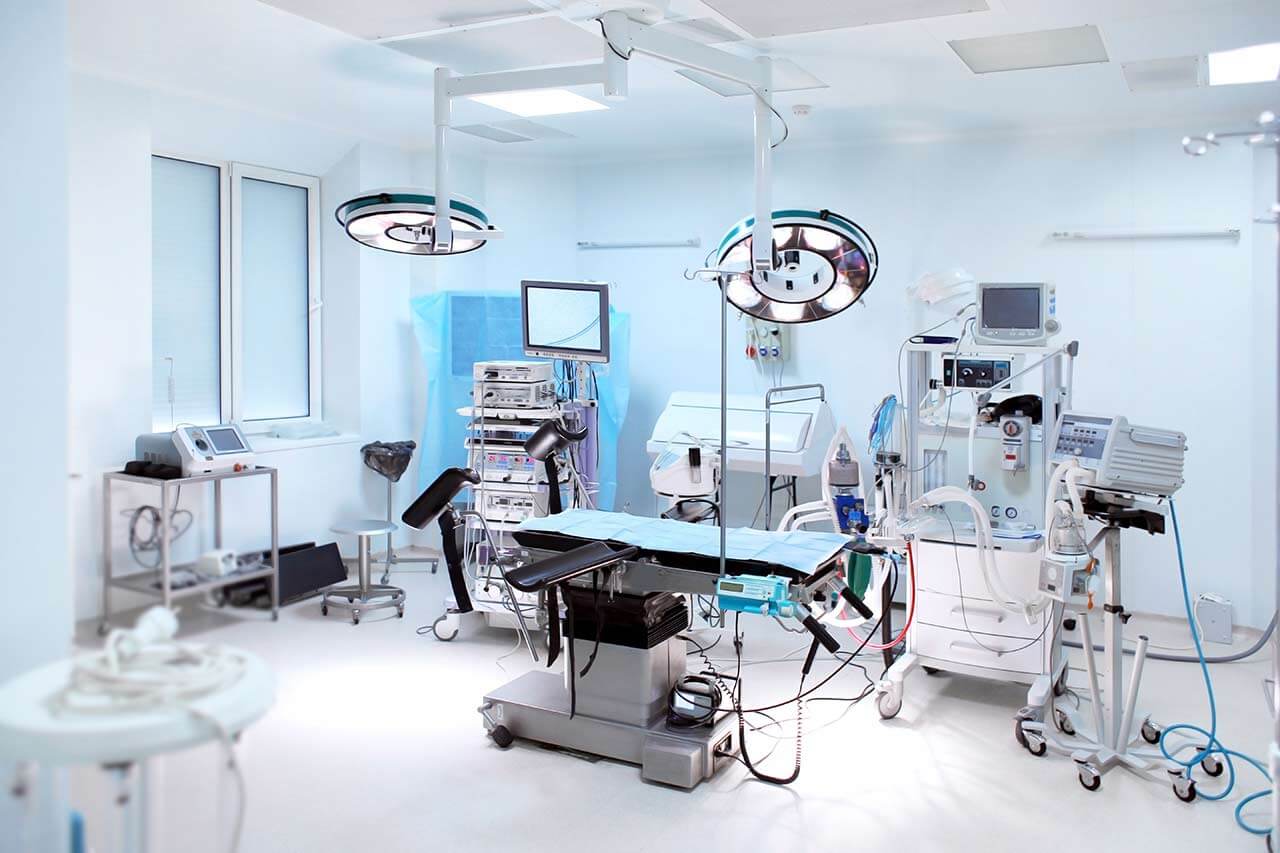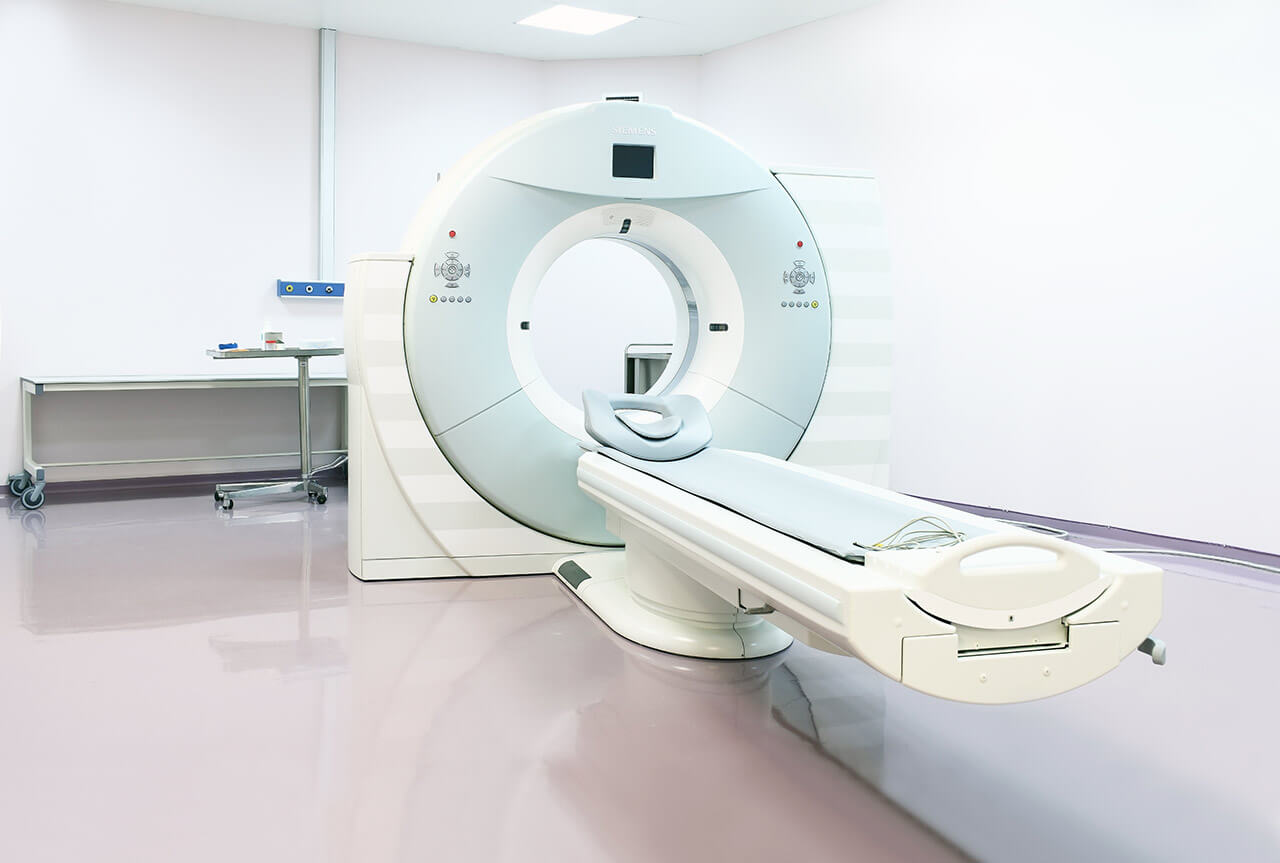
The program includes:
- Initial presentation in the clinic
- clinical history taking
- general clinical examination
- laboratory tests:
- complete blood count
- biochemical blood analysis
- complete hormonal analysis
- abdominal and pelvic ultrasound
- nursing services
- consultation of related specialists
- consultation of the chief physician and all leading experts
- development of individual treatment plan
- written statement
Required documents
- Medical records
Service
You may also book:
 BookingHealth Price from:
BookingHealth Price from:
About the department
The Department of Adult and Pediatric Urology at the Asklepios Hospital Barmbek Hamburg provides the full range of diagnostics and treatment for diseases of the urinary system in women and men, as well as pathologies of the male reproductive system. The department offers the services of a qualified team of pediatric urologists specializing in medical care for young patients with congenital and acquired diseases of the kidneys, bladder, ureters, and genitalia in boys. The department's medical team, which includes world-renowned specialists, treats urologic diseases of any complexity, ranging from kidney stone disease, benign prostatic hyperplasia, prostate cancer, kidney cancer, bladder cancer, and up to congenital urologic diseases. The department's doctors are highly skilled in minimally invasive surgery. They also successfully practice laser therapy. A particular focus of the department's clinical practice is on surgical interventions using the da Vinci surgical system. These surgical procedures provide excellent treatment results but, at the same time, are minimally traumatic. Surgery with the da Vinci surgical system is most often performed for prostate and kidney cancer. The focus of the department's doctors is the patient and their individual needs and wishes. The priority here is personalized and sparing treatment. The Head Physician of the department is Dr. Dr. med. Christopher Netsch.
The department's doctors are deservedly proud of their experience in the treatment of urologic oncological diseases, such as kidney, bladder, adrenal, ureteral, prostate, testicular, and penile cancer. If malignancies are early detected, modern methods allow the patient to recover and return to a full life. Cancer therapy requires a careful approach, so an individual treatment regimen is elaborated for each patient. Specialists from related medical fields may be involved in the therapeutic process whenever required.
Prostate cancer is the most common type of oncology in men. The department has all the possibilities of modern cancer treatment, including the da Vinci surgical system. At the stage of treatment planning, urologists, together with oncologists and radiation therapists, thoroughly study the patient's diagnostic results, taking into account the tumor characteristics, cancer stage, the patient's age, and their general health condition. During an individual consultation, the attending physician explains in detail the possible treatment options and the expected results. In most cases, the first-line treatment is radical prostatectomy, an operation that allows for the total removal of the localized prostate tumor. The department's specialists perform this intervention using the da Vinci surgical system, thanks to which patients receive maximum precision, minimal invasiveness, and the safety of surgical treatment. The operation using the da Vinci surgical system is currently the only surgical method that allows for the preservation of potency and the exclusion of severe urinary disorders. Surgery is often complemented with chemotherapy and/or radiation therapy. Depending on the clinical case, doctors offer patients external beam and internal radiation therapy (brachytherapy). When choosing the internal form of radiation therapy, the radiation source is located directly near the tumor, which allows targeting a high dose of radiation to the cancer focus while practically not affecting the adjacent healthy tissues.
Doctors of the medical facility demonstrate high success rates in kidney cancer treatment. When a malignant kidney tumor is detected, the patient is prescribed a surgical intervention. This is the main treatment method for this type of oncology. Whenever possible, preference is given to organ preservation surgery, during which surgeons remove the tumor with adjacent affected tissues and preserve the kidney. In complex cases, surgical removal of the affected kidney (nephrectomy) may be the best treatment option. Surgical interventions for kidney cancer are also often performed in the department using the da Vinci surgical system. A surgical approach is provided through 5-12 mm skin incisions, and manipulations are performed by the robotic arms of the da Vinci surgical system with built-in instruments and a miniature camera. The robot-assisted system is controlled by an experienced surgeon sitting at the console of the device. The control console screen displays images of the surgical field in real time at multiple zooms in 3D mode, based on which the surgeon gives commands to the da Vinci robot. Robot-assisted surgery allows the doctor to carry out effective treatment, minimizes trauma to healthy tissues, significantly reduces blood loss, ensures minimal postoperative pain for the patient, and provides an excellent aesthetic result.
Of particular interest to the department's urologists is the diagnosis and treatment of benign prostatic hyperplasia. If drug therapy does not give positive results, the patient is prescribed surgical treatment. Surgical options include laser therapy, transurethral resection of the prostate (TURP), and prostate adenomectomy (open surgery). Adenomectomy is performed only in exceptional cases when a patient has a significantly enlarged prostate gland and other methods cannot solve the problem.
The department also specializes in the treatment of urinary incontinence, which is a fairly common problem among both men and women. In order to select the optimal therapy, the doctors conduct a comprehensive diagnosis, which includes studying the patient's medical history, blood and urine tests, ultrasound scans, cystoscopy, urodynamic tests (intravesical pressure measurement), and X-ray scans. The department's medical team offers conservative and surgical treatment for urinary incontinence. The goal of therapy is to eliminate the symptoms and restore the patient's quality of life. Conservative methods include a course of exercises to strengthen the pelvic floor muscles, lifestyle modification, proper nutrition, intimacy counseling, and drug therapy. Many options are available in the field of surgical treatment. These may be minimally invasive interventions, vaginal operations, surgical repair procedures, or open interventions.
The department's team of physicians has vast experience and deep knowledge in pediatric urology. The most common pathologies in children and newborns are malformations and diseases of the ureters, kidneys, bladder, and reproductive system. Timely diagnosis and treatment play a crucial role in pediatric urology. If surgical intervention is indicated, it is usually performed using minimally invasive methods on an outpatient basis.
The department's main clinical focuses include:
- Adult urology
- Diagnostics and treatment of malignant urologic diseases
- Prostate cancer
- Kidney cancer
- Bladder cancer
- Adrenal cancer
- Ureteral cancer
- Testicular cancer
- Penile cancer
- Diagnostics and treatment of benign urologic diseases
- Benign prostatic hyperplasia
- Urinary tract infection
- Urinary incontinence
- Kidney stone disease
- Varicocele
- Hydrocele
- Spermatocele
- Diagnostics and treatment of malignant urologic diseases
- Pediatric urology
- Diagnostics and treatment of cryptorchidism
- Diagnostics and treatment of hydrocele
- Diagnostics and treatment of varicocele
- Diagnostics and treatment of vesicoureteral reflux
- Diagnostics and treatment of renal pelvic stenosis
- Diagnostics and treatment of urethral stenosis
- Diagnostics and treatment of kidney stone disease
- Other diseases
The department's therapeutic options include:
- Conservative therapy with medications
- Minimally invasive interventions, including ureteral, bladder, and renal pelvic reconstructive plastic surgery
- Endoscopic interventions
- da Vinci robot-assisted surgery
- Other treatment methods
Curriculum vitae
Higher Education and Postgraduate Training
- 2005: Medical studies, Universities of Mainz and Bern.
- Habilitation, Semmelweis University in Budapest, Hungary. Subject: "The Importance of Water Vapor Enucleation of the Prostate Using a Thulium Laser (ThuVEP) in Transurethral Enucleation of the Prostate."
- Doctoral dissertation defended with honors, Department of Endocrinology and Metabolism, University Hospital Mainz. Subject: "Evaluation of the Aldosterone-Renin Ratio as a Screening Test for Primary Hyperaldosteronism."
- Venia legendi for Urology, Semmelweis University in Budapest, Hungary.
Professional Career
- 2006 Assistant Physician, Department of Urology, University Hospital Bern.
- 2007 Assistant Physician, Department of Urology, Municipal Hospital Karlsruhe.
- 2008 Assistant Physician, Department of Adult and Pediatric Urology, Asklepios Hospital Barmbek Hamburg.
- 2011 Board Certified in Urology.
- 2013 Senior Resident, Department of Adult and Pediatric Urology, Asklepios Hospital Barmbek Hamburg.
- 2014 Senior Physician, Department of Adult and Pediatric Urology, Asklepios Hospital Barmbek Hamburg.
- 2025 Head Physician, Department of Adult and Pediatric Urology, Asklepios Hospital Barmbek Hamburg.
Additional Qualifications
- X-ray diagnostics of the urinary tract pathologies.
- Laser treatment safety coordinator.
- Infection control coordinator.
- Theoretical foundations in radiation protection.
Research Interests
- Benign prostatic hyperplasia.
- Endourology.
- Laser therapy.
- Urolithiasis.
Scientific Interests
- Development of new endoscopic surgical techniques and instruments.
- Clinical and experimental studies of ureterorenoscopy and percutaneous urolithiasis therapy.
- Minimally invasive treatment of benign prostatic hyperplasia (BPH) using the Tm:YAG laser.
- Minimally invasive treatment of prostate cancer using the HIFU procedure.
Prizes, Awards, and Honors
- 2012, 2014, 2016 Award from the Medical and Scientific Foundation of the Asklepios Hospital Barmbek Hamburg.
- 2013 Nomination for the CE-Alken Prize of the CE-Alken Foundation.
- 2013 Wolfgang Mauermayer Prize from the German Society of Urology.
- 2014 Hans Marberger Award from the European Association of Urology.
- 2014 Olympus Best Paper Award from the World Congress of Endourology (WCE), Taipei, Taiwan.
- 2014 and 2017 Best Poster Award from the European Association of Urology.
- 2014 Video Award from the World Congress of Videourology, Sofia, Bulgaria.
- 2014 and 2017 Best Poster Award from the European Association of Urology.
- 2014 Video Award from the World Congress on Videourology, Sofia, Bulgaria.
- 2015 Best Reviewer of the Journal of Endourology.
- 2016 and 2021 Winfried Vahlensieck Award from the German Society of Urology.
- 2019 Best Poster Award from the European Association of Urology, Barcelona.
- 2019 Best Poster Award from the European Association of Urology, Chicago.
- 2021 Scientific Award from the Nordic Congress of Urology, Oldenburg.
- 2025 Best Reviewer, European Urology.
Memberships in Professional Societies
- Endourological Society (ES).
- European Board of Urology (FEBU).
- Working Group on Endourology of the Academy of German Urologists.
- German Continence Society.
- Urology Technology Section of the European Association of Urology (EAU): Focus on the Treatment of Lower Urinary Tract Diseases.
- German Society of Residents in Urology (GeSRU).
- Association of Urologists in Northern Germany (VNU).
- European Association of Urology (EAU).
- Working Group on Endourology of the German Society of Urology (DGU), Chairperson.
Photo of the doctor: (c) Asklepios Klinik Barmbek
About hospital
The Asklepios Hospital Barmbek Hamburg is an academic hospital of the University of Hamburg. The hospital was opened in 2005, and today it is one of the best and most modern medical centers in Europe. The priority areas of specialization of the medical facility are emergency medical care and comprehensive treatment of cancer, urologic diseases, gastrointestinal diseases, and pulmonary diseases, as well as abdominal surgery and thoracic surgery. The hospital provides patients with top-class medical services that meet international standards.
The hospital has 620 beds. More than 36,000 inpatients and about 74,000 outpatients are treated here every year. The patients' health is in the safe hands of a highly professional team of over 1,600 doctors and nursing staff.
The hospital offers high-quality diagnostic and therapeutic services and strictly follows current clinical protocols. The hospital boasts modern infrastructure and state-of-the-art medical equipment. The hospital is one of the few in Europe where patients are successfully operated on using the da Vinci surgical system. The hospital also houses well-equipped endoscopy rooms, cardiac catheterization laboratories, laser surgery rooms, and operating rooms for arthroscopic interventions. All these technical resources contribute to effective and, at the same time, minimally traumatic treatment.
It is worth noting that the hospital has vast experience in serving international patients. According to the Medical Travel Quality Alliance (MTQUA), the Asklepios Hospital Barmbek Hamburg ranks among the top three medical centers worldwide for medical tourism.
The medical center also holds the international DIN EN ISO 9001:2015 quality certificate, attesting to the excellent medical services provided. For its outstanding achievements in oncology and surgery, the hospital has been awarded certificates from the German Cancer Society (DKG) and the German Society for General and Visceral Surgery (DGAV).
Photo: (с) depositphotos
Accommodation in hospital
Patients rooms
The patients of the Asklepios Hospital Barmbek Hamburg live in comfortable single and double rooms. Each patient room has an ensuite bathroom with a shower and a toilet. The patient room furnishings include an automatically adjustable bed, a bedside table, a table and chairs for visitors, a TV, a radio, and a telephone. Wi-Fi access is also available in the patient rooms.
Patients can also be accommodated in enhanced-comfort rooms, which additionally include a rest area with upholstered furniture and a working area with a desk and a reading lamp. The bathroom in the enhanced-comfort rooms includes necessary toiletries, changeable towels, bathrobes, slippers, and a hairdryer. The enhanced-comfort rooms correspond to the standards of a high-class hotel.
Meals and Menus
The hospital offers tasty and balanced meals. Patients receive several menus to choose from and can see the menu in advance using a special mobile application. The hospital takes patients' food preferences into account and offers a wide range of dietary and vegetarian dishes. Breakfast, lunch, and dinner are served in the patient's room.
There is a cozy cafeteria on the first floor of the hospital where one can enjoy a cup of aromatic coffee or delicious tea with a dessert. The cafeteria offers a wide selection of snacks and salads.
There is a small store on the territory of the hospital where one can buy fresh fruits, yogurts, sweets, and magazines.
Further details
Standard rooms include:
Religion
There is a prayer room on the first floor of the hospital where patients can find solitude for prayer.
The hospital has an evangelical pastor who is happy to talk with patients and support them in the process of their treatment.
Representatives of other religions are available upon request.
Accompanying person
Your accompanying person may stay with you in your patient room or at the hotel of your choice during the inpatient program.
Hotel
You may stay at the hotel of your choice during the outpatient program. Our managers will support you for selecting the best option.





